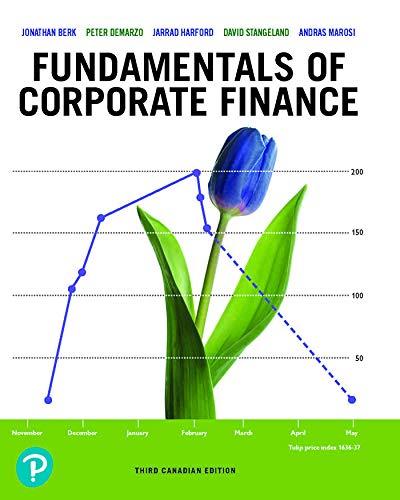Question
According to Elizabeth Allen and David Child. Whilst the impact of COVID-19 lockdowns has differed in each country, businesses in the USA large and small
According to Elizabeth Allen and David Child. Whilst the impact of COVID-19 lockdowns has differed in each country, businesses in the USA large and small have suffered as a result. Many businesses have had to close and have had virtually no business income while having continuing and unavoidable expenses; e.g., property rents and maintenance costs. Others have been able to continue operations but with lower levels of income. The key to the recovery of small and medium-size enterprises must be cash flow. Governments are doing many things to assist in their liquidity and preserve employment. These range from direct support (paying wages, facilitating loans, and providing cash injections to the selfemployed) to indirect support (such as delaying tax payments). However, less affluent state governments that are struggling to fund essential (particularly health) services, are unlikely to be able to offer businesses direct support. Fiscal policy must now complement any direct government support and reflect the changed world we find ourselves in. Governments also need revenue inflows to maintain public services, especially as the cost of some public services such as healthcare will have increased. So, there will be a delicate balance to be struck between the two conflicting aims. As a result of the global COVID-19 pandemic, lockdowns across the world have resulted in severe cash-flow difficulties for many SMEs and huge increases in unemployment. SMEs, while directly paying often less than 20 percent of the direct and indirect tax revenues, support larger businesses as both customers and suppliers. Small business start-ups fuel economic growth, as they can become the successful large businesses of the future. Hence, SMEs are a vital cog in business in states and provide employment for millions of employees and business owners. One of the goals of tax policy for economic recovery must be to enable this sector to recover from the financial impact of the business interruption caused by the COVID-19 lockdowns. To help SMEs maintain cash-flow is the core goal of this fiscal policy and administration guidance. Even more fundamentally, this guidance aims to cover the immediate help that SMEs will need from tax systems to stay in business. It also looks beyond the immediate period toward how tax policies and tax administration can be re-geared so as to help the SME sector grow in the future (and, thereby, provide governments with increased revenue inflows). Requirement: Although there is a general understanding of the businesses that constitute SMEs, there is no standard definition of these, as the economic situation differs in each state. However, most tax administrations segregate large businesses hence SMEs, de facto, constitute all the other businesses that are required to register for tax. The revenue from all taxes will have suffered as a result of the COVID-19 lockdowns and the subsequent reductions of economic activity. Your paper must take into consideration the impact of COVID-19 on both SMEs and tax revenues. Discuss the affected tax types in your research paper. The impact of COVID-19 on SMEs goes wider than taxation, as those businesses have to contend with both regulations from other public sector bodies including local and regional authorities and other constraints that contribute to the costs of doing business, including: In most markets: Restrictions on opening hours and other licensing rules Regulations covering product approvals, content, and labelling Hygiene and other health and safety requirements Environmental restrictions Product labelling and display restrictions. In some markets: Unreliable electricity supplies Lack of safe drinking water Inadequate sanitation Inadequate social and medical benefits Corruption of public sector officials at all levels and across all parts of the public sector Flourishing illicit markets Lack of security and ineffective crime prevention. With many SMEs either being unable to trade or trading at greatly reduced levels of turnover, and in order to facilitate their survival, the sector is seeking ways of deferring or reducing their tax liabilities so they can preserve their struggling cash flows. Highlight possibilities that tax policymakers and administrations might consider either for all SMEs or for the hardest hit sectors and explain how each highlighted tax type can result in lower tax liabilities to SMEs. Please conclude by stating how all of your suggestions will positively impact SMEs.
Base the paper on the theme " However, unless they are transitory, some of these policies might obstruct a firm recuperation which hinders the government tax revenue base negatively. "
Step by Step Solution
There are 3 Steps involved in it
Step: 1

Get Instant Access to Expert-Tailored Solutions
See step-by-step solutions with expert insights and AI powered tools for academic success
Step: 2

Step: 3

Ace Your Homework with AI
Get the answers you need in no time with our AI-driven, step-by-step assistance
Get Started


